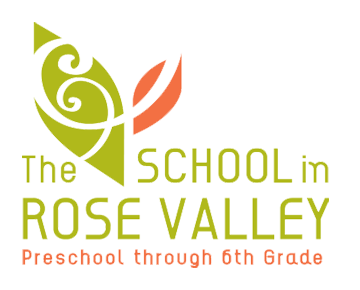 At The School in Rose Valley, progressive education is at the very core of our philosophy. We believe that learning should be authentic and enjoyable, and that children should play an active role in their own development. In our progressive classrooms, we encourage learning that is experiential, emergent, and collaborative. We help students explore their academic and non-academic interests while providing them with a foundation for success both inside and outside of the classroom.
At The School in Rose Valley, progressive education is at the very core of our philosophy. We believe that learning should be authentic and enjoyable, and that children should play an active role in their own development. In our progressive classrooms, we encourage learning that is experiential, emergent, and collaborative. We help students explore their academic and non-academic interests while providing them with a foundation for success both inside and outside of the classroom.
What Are the Core Qualities of a Progressive Classroom?
- Experiential learning – A progressive classroom emphasis learning by doing through hands-on projects and active, expeditionary learning. Instruction relates to the real world, provided context and meaning to students. It also allows students to construct their own understanding and knowledge of the world through experiences and reflecting on those experiences.
- Emphasis on lifelong learning and skills – Teaching students how to be engaged, active, and responsible learners helps them develop the skills and habits of mind that make learning both accessible and fun. When students know themselves as learners, they become self-motivated, disciplined, and open-minded, flexible thinkers. This helps them cultivate a lifelong love of learning and key skills necessary for succeeding in the workplace.
- Interdisciplinary learning – Progressive classrooms use integrated curriculum so that students learn by forging connections between concepts and ideas across different disciplinary boundaries. When students apply the knowledge they have gained in one discipline to a different discipline, it deepens their understanding of a concept by looking at its real world applications. That is why there is less reliance on a single textbook for a subject in favor of varied learning resources.
- Understanding as the goal of learning instead of rote knowledge – Traditional schools primarily focus on rote learning – the memorization of information based on repetition. While this allows students to quickly recall basic facts, it doesn’t provide a deep understanding of the information and how these facts relate to one another. Progressive education focuses on having a sound understanding of a subject so that students can apply the information to a variety of scenarios and form connections between new and previous knowledge. Students learn how to investigate, evaluate, analyze, remember, make comparisons, and communicate, giving them better problem solving and cognitive skills.
- Collaborative and cooperative learning – By focusing on community, responsibility, and group participation, progressive classrooms help students develop the emotional intelligence and social skills they need to to work in groups, enjoy healthy relationships, and to live fulfilling and successful lives.
- Emphasis on problem solving and critical thinking – We help students build higher-order skills (investigating, evaluating, problem-solving, and communicating) and encourage them to frequently reflect on their learning and follow their own questions so that they gradually fit knowledge into a meaningful whole. Students practice risk taking and teachers help them learn how to bounce back and learn from mistakes.
- Teaching social responsibility and democracy – Moral development is not a separate section of the curriculum, but is intentionally interwoven in everything we teach at The School in Rose Valley. Through community service and service learning projects, we value and actively teach students about democracy, encompassing freedom, responsibility, and participation. We also advance sustainability as personal, campus, local, and global practices.
To learn more about progressive education and The School in Rose Valley, please contact Rory Mannion, Director of Admission & Tuition Assistance, at rorym@theschoolinrosevalley.org or 610.566.1088.

